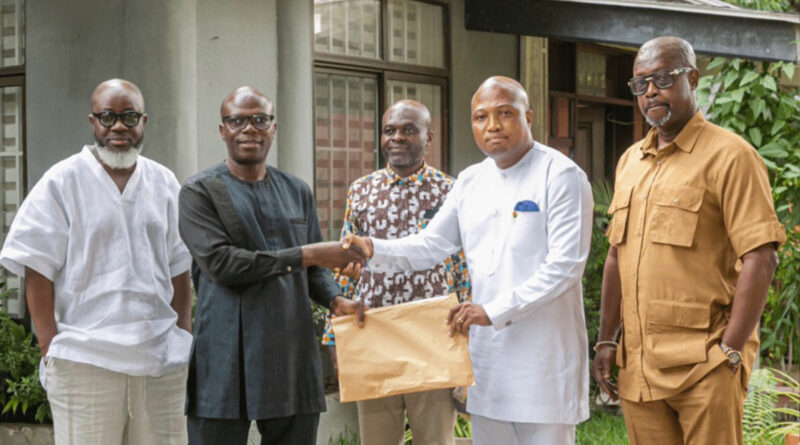ORAL Team Receives First Dossier on GHS500m Scandal
Team Operation Recover All Loots (ORAL) has officially received its first dossier regarding the alleged GHS500 million National Service ghost names scandal. The dossier was presented today, Friday, December 20, 2024, by The Fourth Estate and the Media Foundation for West Africa.
Announcing the receipt, the leader of ORAL, Samuel Okudzeto Ablakwa, expressed gratitude to the media organizations for their commitment to exposing corruption. “We are extremely grateful to The Fourth Estate and the Media Foundation for West Africa for the presentation and their exceptional patriotism. Together, we shall reset Ghana and recover all loot,” Ablakwa stated on his X (formerly Twitter) account.
New Anti-Corruption Platforms
The team had earlier assured the public that any information received would be treated with utmost discretion and acted upon expeditiously. This commitment follows the unveiling of new interactive platforms to encourage citizens to report suspected acts of corruption securely.
As part of this initiative, the Mahama Transition Team, led by spokesperson Felix Kwakye Ofosu, announced on Wednesday, December 20, 2024, that members of the public could report corruption through the following channels:
- Toll-free number: 0800 900 111
- Dedicated website: www.oralgh.org
- Email address: public@oralgh.org
These measures aim to foster transparency and strengthen governance in the incoming administration.
Clarification of ORAL’s Role
President-elect John Dramani Mahama has addressed concerns regarding the team’s purpose, clarifying that ORAL is not an investigative body but a focal point for collecting evidence on acts of corruption.
“ORAL is not going to be investigating people; it is going to gather evidence and pass it on to the institutions that are supposed to do that kind of work. If people have information that they think is useful in the fight against corruption, pass it on to the team. The team is not expecting any payment, and there is no budget associated with it,” Mahama explained.
Despite this clarification, some Ghanaians, including governance expert Kwasi Yirenkyi, have expressed skepticism. Yirenkyi argued that existing state institutions, such as the Attorney General’s Department, EOCO, CID, and NIB, are already equipped to perform the functions assigned to ORAL.
“If you ask me, this team that has been formed is not needed; it is the same business as usual. It appears to be a team created to appease party members and others who may have genuine concerns about how some officials have dipped their hands into state coffers,” Yirenkyi told journalists.
Composition of the ORAL Team
To ensure transparency and efficiency, the team comprises individuals with diverse expertise in law, auditing, journalism, and law enforcement. The members include:
- Hon. Samuel Okudzeto Ablakwa – Chairman
- Mr. Daniel Domelevo – Former Auditor-General
- COP (Rtd.) Nathaniel Kofi Boakye
- Mr. Martin Kpebu – Private Legal Practitioner
- Mr. Raymond Archer – Investigative Journalist
Commitment to Accountability
Joyce Bawa Mogtari, Special Aide to the President-elect, has issued a stern warning to individuals implicated in corruption under the current administration, urging them to prepare to face the law. Speaking in an interview with Channel One TV, Mogtari emphasized that the incoming NDC government is committed to recovering looted resources and addressing Ghana’s economic challenges.
“We need to revive the economy, and everything else will thrive. Ghanaians have given Mahama a massive win to deliver. We need to recover the looted resources and complete all abandoned projects,” Mogtari said.
She also criticized the current administration for its handling of key sectors, including power and infrastructure, and pledged that the new government would prioritize transparency and accountability.
A New Era of Governance
As ORAL begins its work, expectations are high for the incoming Mahama administration to deliver on its anti-corruption promises. With the first dossier in hand, the team’s actions in the coming months will serve as a critical test of its effectiveness and the broader commitment to accountability in Ghana.
